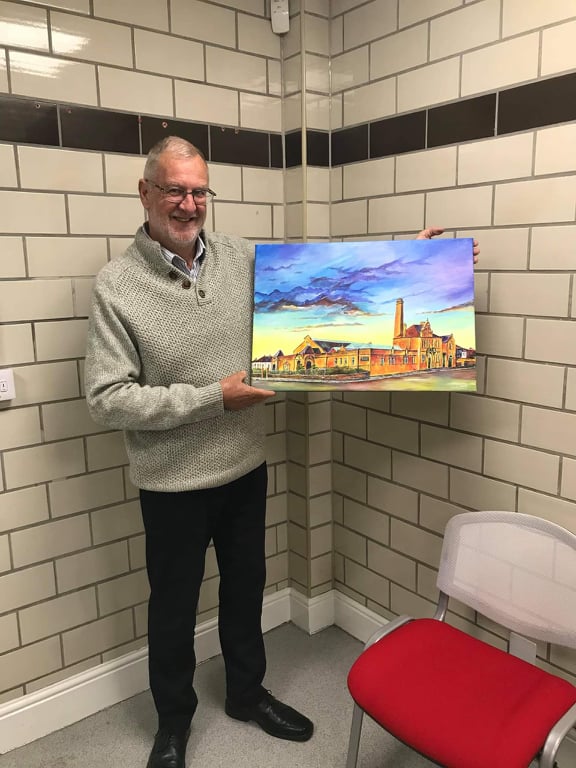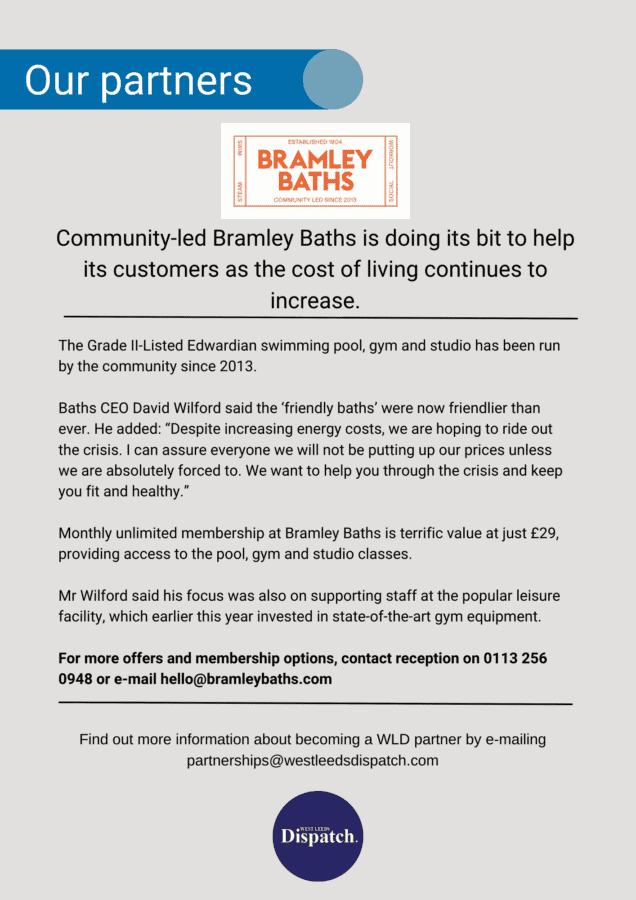By Alex Melia
The latest episode of Our Voices – a new podcast series revealing the untold stories of people across the country – focuses on former Leeds West MP Sir John Battle and a particularly intense confrontation caused by his expression of an unpopular opinion.
The year was 1981 and the location was Leeds. John was taking part in a local council meeting six years before he would become an MP. The debate taking place was in regards to travellers.
They had become a concern for certain people in the community as they would tend to park their caravans in residential areas.
This would sometimes lead to conflicts with local residents. “What tended to happen was the council went in very hard to drive them off, but without any provision for anywhere for them to go. And I remember raising this matter in the council, and evoking a ferocious reaction.”
Taking the wrong side
Apparently, the council members could not understand why Sir John was taking the side of the travellers. Politically, there was no capital to be gained in the area as travellers tended not to vote. There was also a lot of prejudice towards the travelling community.
“There wasn’t much sympathy for travellers and gypsy people at that time,” Sir John, who lives on Bramley, said. “They were seen as outsiders. And there was a bit of racism around at that time, and I didn’t quite realise what kind of a reaction my intervention would evoke.”
Expressing principles
Despite the hostility that Sir John’s arguments were clearly generating, he pressed on with his unpopular opinion. He argued that somewhere in the community should be found for the travellers to settle. He also argued that the travelling children should be provided an education. It was at this point that one of the other council members got out of his seat and marched menacingly in John’s direction.
A menacing confrontation
The man who was fast approaching was one of the council leaders. While John was simply a “scruffy backbencher” in his early 20s, who did not have much power within the organisation. Not only was the man intimidating because of this power dynamic, he also had a domineering physical presence. “He was a burly bloke and a lot older than me. He was heavily built, I was a bit of a skinny malink. And I thought, well, do I take my chances?”
The man continued walking up to John until the two men were merely a shoulder’s-length apart. “I felt quite threatened really, you know, I thought… are we going to have an open fight at the back of the council meeting? And I kind of felt, well, we’ve gone beyond words here.”
Being silenced
Fortunately, no more than a few angry utterances were exchanged. But the man’s actions had done enough to make John feel fearful about the further reaction that his unpopular opinion might generate. They also proved to be enough to shut John up on this occasion. In backing down and being silenced, John asks himself the question: had he reacted in the right way?
A bit of a peacenik
Being confronted in such a manner is bound to make anyone feel nervous. As a wearer of glasses and a man who usually uses his words to manage confrontation, John describes himself as naturally being “a bit of a peacenik”, his surname notwithstanding. But being made to feel vulnerable in that moment could cause one to question their masculinity in a fundamental way.
Not speaking up when it matters
The public nature of the experience could also make some men feel exposed, even humiliated. Describing the reaction of the rest of the people in the room, John says: “It was a deathly silence… And then we were silent for a few minutes and then it was the next item on the agenda and we move on, as if nothing had happened.” John had been silenced but the rest of the room had been complicit in allowing that silence to be enforced.
While reflecting on the moment, John says: “It always haunts me to ask: how courageous are you raising issues that are unpopular, when you’re not quite sure how much antipathy that challenge will evoke from people and how much they can cope with it as well as yourself?”
Drawing on his experience
Clearly John found the answer to that question as he became an MP and spent more than 20 years in Parliament. When faced with difficult moments, he drew on this experience of expressing an unpopular opinion to get him through.
“I think, in a way, that experience strengthened me, and I’m grateful for it, because there came occasions later in life, both in Parliament, and even in government… where it was important to speak out, and to stand up for themes that you researched and believed were right, even if you paid the price.”
Bringing the community together
John now spends his time running a men’s walking group at New Wortley Community Centre, which gets isolated men in the community to come out of their flats and join in a social activity. He has been doing this for over 11 years and talks about how he spends time with talented, overlooked people, who have spent so much of their lives being ignored while facing societal challenges.
The power of vulnerability
Talking about what motivates him and the values he believes to be important, John talks about the power of vulnerability: “Accepting your own vulnerability and not being ashamed or afraid to share your vulnerabilities is really crucial in helping other people to share their own and say, actually, we’re all vulnerable. Whatever walk of life we’re in, whatever level of society we’re in, there are real vulnerabilities. And that can be wounds that hurt. But if we can share them, we’ll get through it together and be able to be much more hopeful and positive.”
John’s instinctive sympathies for those who are marginalised clearly came to the fore during that council meeting back in 1981.
And being confronted in such a threatening manner may have silenced him on that one occasion, but it could not prevent him from living by and expressing his principles from that day forward. John has clearly demonstrated that he is willing to pay the price for having an unpopular opinion. That level of courage is something we should all be proud to possess.
The podcast can be found here:
- Apple Podcasts: https://apple.co/3DlwwHo.
- Spotify: https://spoti.fi/3RGIpf0.



If “Sir” John cares so much about talented, overlooked people, why did he vote to remove government funding from the Open University in January 2008? This caused OU fees to triple, including in IT courses, where there is a severe skills shortage.
He also voted for the 2008 Climate Change Act, which closed our existing power stations and stops us building any more, so he must take some of the blame for our current energy crisis.